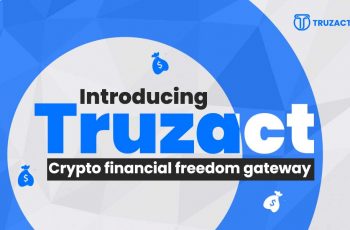How Blockchain Technology Will Help the Education System in 5 Ways
One tremendous feature of Blockchain Technology (BC henceforth) is its ability to improve and make easier every sector and facet of society. In its simplest form, BC Technology is a distributed ledger technology (DLT) that automatically records and verifies transactions and information.
Information on the BC are stored on a network of computers, through a decentralized system, there is no central authority or entity that has control over it. This, therefore, reduces the risk of fraud or tampering with records. Aside from powering Bitcoin and other cryptocurrencies, BC technology has spread its powers through and to other industries – one of which is Education.
Education is striving through major cuts and challenges that go far beyond trying to boost and develop the teaching-learning process. The education field is core because it holds the prospect for other fields such as medicine, business, accounting, science, agriculture, engineering, and many others. Therefore, it is a necessity for blockchain interoperability in education.
the points below are the uses of blockchain in education globally.
How Will Blockchain Technology Improve Education in Nigeria?
- Certificates: – blockchain in education
There are so many benefits of blockchain in education, With the use of paper-based certificates and diplomas, it is easy for these vital documents to be lost. Unforeseen hazards such as war, flood or fire could destroy them forever and it may be difficult to trace back.
Schools or institutions may not have those documents stored in their archives anymore, some institutions delete old records for storing records of new students. Once a diploma or other vital information are stored using the BC Technology, it would be very difficult to delete, lose or forge. To alter one document, the copies in every system must be also altered one after the other, which is impossible.
The information can easily be accessed at the owner or student’s consent. Blockcerts, a project of Massachusetts Institute of Technology (MIT), is an open standard that enables institutions to apply BC in educational programs. Over 100 digital diplomas were issued out to MIT graduates applying Blockcert.
Storing diplomas and certificates in the blockchain will give employers confidence in the knowledge base of their employees. It would serve as a panacea to the issue of low qualified staffs using false certificates to secure high standard jobs. Verification of employees’ certificates, diplomas or degrees would be just a link away.
- Students Record: blockchain in education
BC Technology will help institutions keep records of students’ attendance, grades, payments, course work and certificates/diploma. Since these records cannot be deleted, this helps with data security in that it is inflexible and immutable. When a student start or resumes school, whatever the student scores in a test or examination, the amount paid for tuition, the courses offered and studied, even health records and other data that are necessary for enrolling a student will all be documented in the BC.
Sony Global Education in partnership with International Business Machine (IBM) developed an educational BC platform which enables institutions record, save and share students’ data to different educational institutions. This will help school authorities to keep track of students and reduce the risk of identity theft.
- Learning Marketplace: – blockchain in education
The price of quality education is has skyrocketed in recent years, making it almost impossible to gain a degree. BC technology has the competence to connect students with teachers directly, cutting down expenses and taking away intermediaries and middlemen. This will make the teaching-learning process transparent and less demanding for both the teachers and students. On Demand Education Marketplace (ODEM) and Disciplina are BC-based platform developed to cut out the inefficiencies in the educational system by connecting the teachers and students directly and improving the process by which they receive education. With the use of cryptocurrency as a payment method, education would become easier and cheaper.
- Records Management: – blockchain in education
Papers for printing these certificates and the printing process itself cost a lot of money and time. BC technology will help school eliminate the expense on printed product and the storage of information. The time spent on printing and storing this information could be channeled toward more productive activities.
Instead of printing the certificate on perishable sheets, the certificate could be recorded on the BC and sent to students on their device, moving the burden and responsibility of storing the certificates to the students. This shift in paradigm would give school authorities the time to dwell on other activities and save millions that go into papers, printing and storage every year.
From verifying diplomas to keeping the records of students, there are a lot of improvements to be done in the educational system. Recently, universities are trying to implement Blockchaininto their systems, to keep track and records of students and educators.
MIT is already using Blockcert, the University of Nicosia in Cyprus has also implemented a BC-based library for keeping the details of students and their diplomas. With BC technology infused into education, there is sure to be transformation more than is already obtainable.
There are my current anf future of blockchain in education sector in

